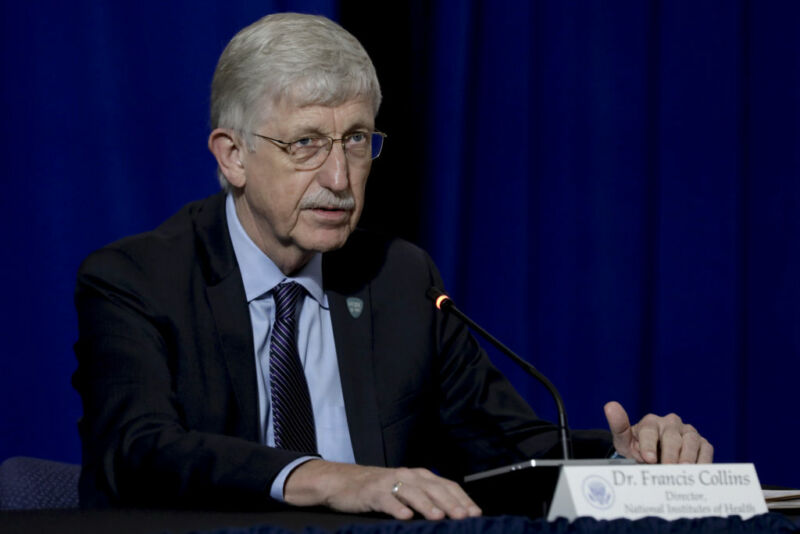
Enlarge / Francis Collins, director of the U.S. National Institutes of Health, reportedly objected to the FDA's decision to grant an Emergency Use Authorization to plasma treatments. (credit: Bloomberg / Getty Images)
Last week, the FDA announced that it was issuing an emergency use authorization for the treatment of COVID-19: the blood plasma of people who have recovered from a COVID-19 infection. But controversy quickly engulfed that announcement after it became clear that the head of the FDA had exaggerated the effectiveness of the treatment when explaining why it was being approved.
The FDA's salesmanship of blood plasma—which is a treatment of unknown efficacy—was taken as evidence that the emergency use authorization was the product of political pressure exerted by a Trump administration anxious to have some good news to promote its reelection campaign. Additionally, health experts at the National Institute of Health (NIH) didn't agree with the decision and had tried to block it a week ago. Now, the NIH may be striking back, releasing a document that basically says it's looked at the evidence and is not convinced.
Not so fast
While the CDC and FDA have led some aspects of the coronavirus response, the NIH is the employer of Anthony Fauci and the largest biomedical research organization in the world. So it certainly has things to say about how to handle the pandemic, and it maintains a COVID-19 Treatment Guidelines Panel. This, as its name implies, maintains guidelines on different aspects of care for the disease. So, given that the FDA has just given an Emergency Use Authorization to a treatment, it essentially forced the NIH to respond in some way.
No comments:
Post a Comment